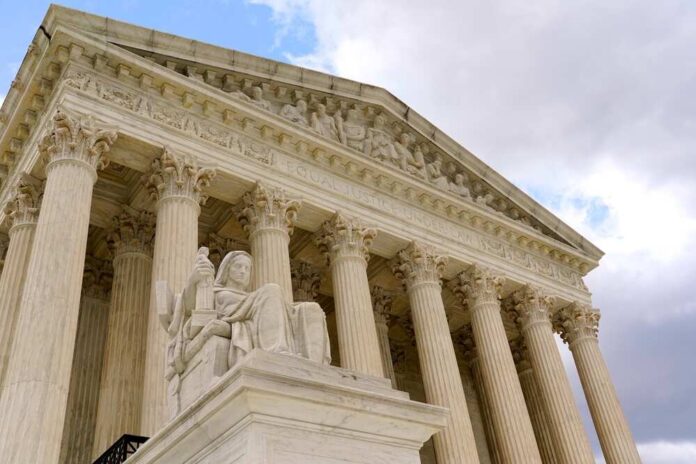
In an act of open defiance of the U.S. Supreme Court, Democratic Arizona Attorney General Kris Mayes vowed Friday to ignore the high court’s recent ruling regarding free speech.
It was that same day when justices decided 6-3 that Colorado officials could not compel a Christian web designer to create wedding websites for same-gender couples. This ran counter to her religious beliefs.
Though the court was clear, Mayes called the majority decision “woefully misguided” and pledged to not enforce the law. The case challenged Colorado’s Anti-Discrimination Act which compelled public accommodations to provide services regardless of beliefs.
🚨 BREAKING: Recently elected Arizona AG Kris Mayes announces that she is REFUSING to abide by the new Supreme Court ruling that allows for religious freedom.
What a disgrace! https://t.co/EhoKXdA6HY
— Proud Elephant 🇺🇸🦅 (@ProudElephantUS) July 5, 2023
Instead of performing her constitutional duty, Mayes declared her intent to enforce a similar public accommodation law in Arizona “to its fullest extent.”
In a Friday statement, Mayes said her office “is still reviewing” the obvious meaning of the high court ruling. She stated she agreed with Justice Sonia Sotomayor that “the idea that the Constitution gives businesses the right to discriminate is ‘profoundly wrong.’”
In 303 Creative v. Elenis et al., the court’s six Republican appointees sided with the free speech rights of the web designer while the three Democratic appointees dissented.
The issue before the court was not a case of the web designer refusing to work with same gender couples. She said that was not a problem. Instead, it was being compelled to write specific words and create messages that conflicted with her Christian faith.
Justice Neil Gorsuch wrote for the 6-3 majority. He declared the First Amendment “protects an individual’s right to speak his mind regardless of whether the government considers his speech sensible and well intentioned or deeply ‘misguided.’”
The opposite, according to Justice Gorsuch, is also true.
He explained that the government may not compel a person “to speak its message when he prefers to remain silent.” It may also not force an individual “to include other ideas with his own speech that he would prefer not to include.”
Both, Gorsuch concluded, “offend” the Constitution equally.
Maye disagreed and announced Arizona will instead follow the dissenting opinion in the case. She maintained that state law continues to ban “discrimination in places of public accommodation.”
In other words, state law supersedes federal law, which is blatantly unconstitutional.





























